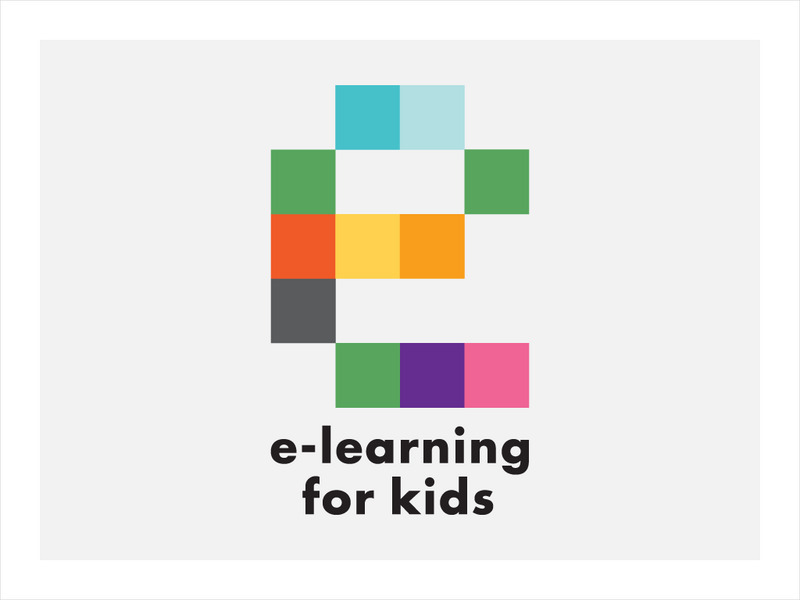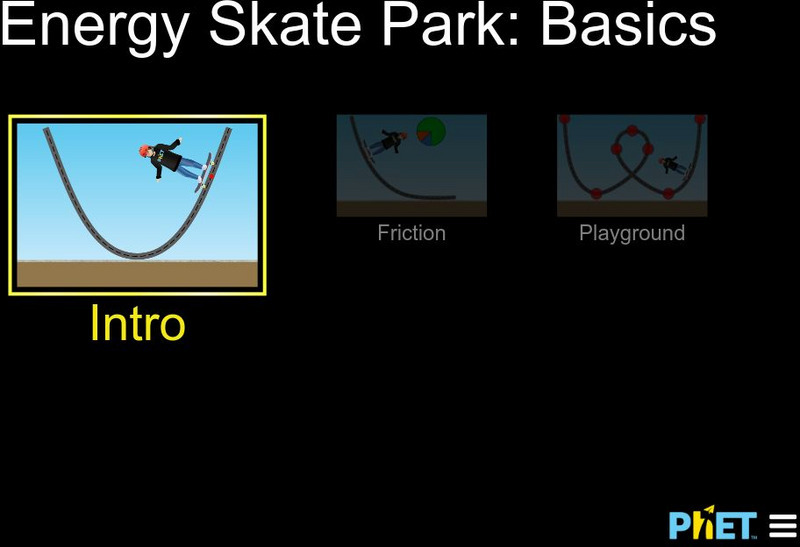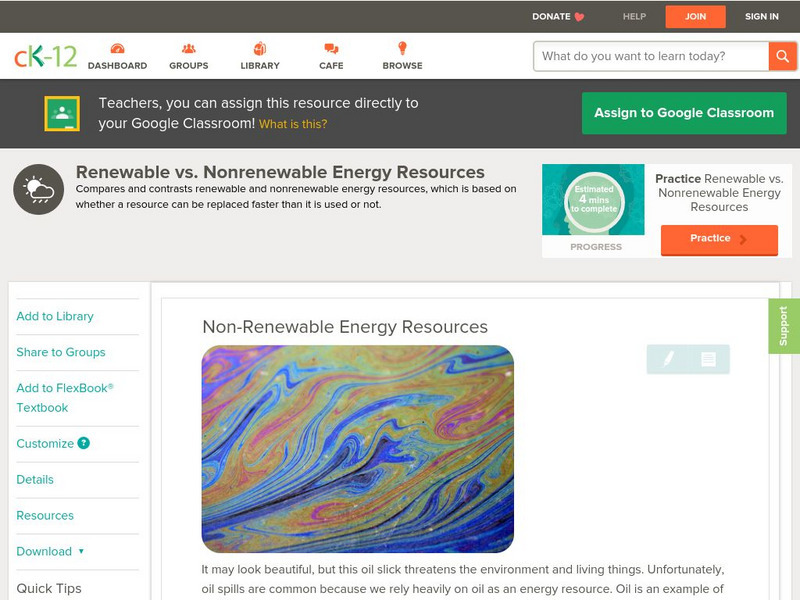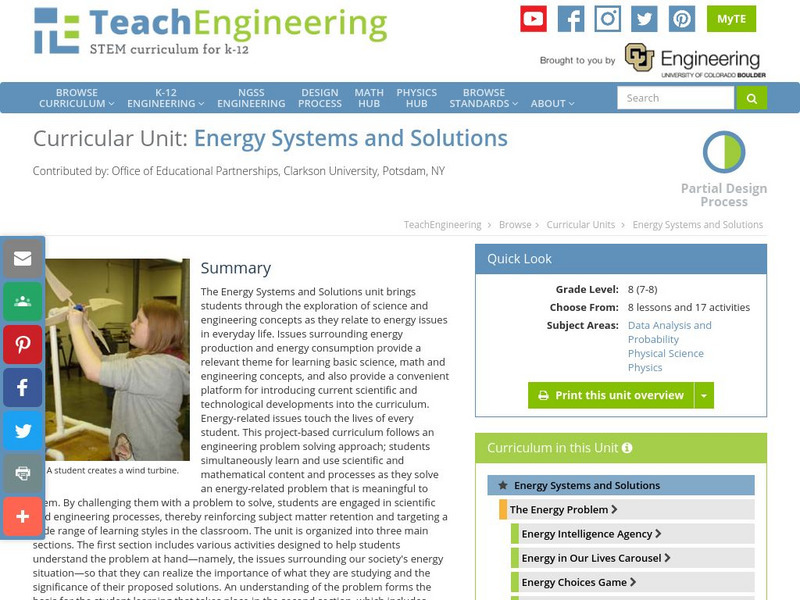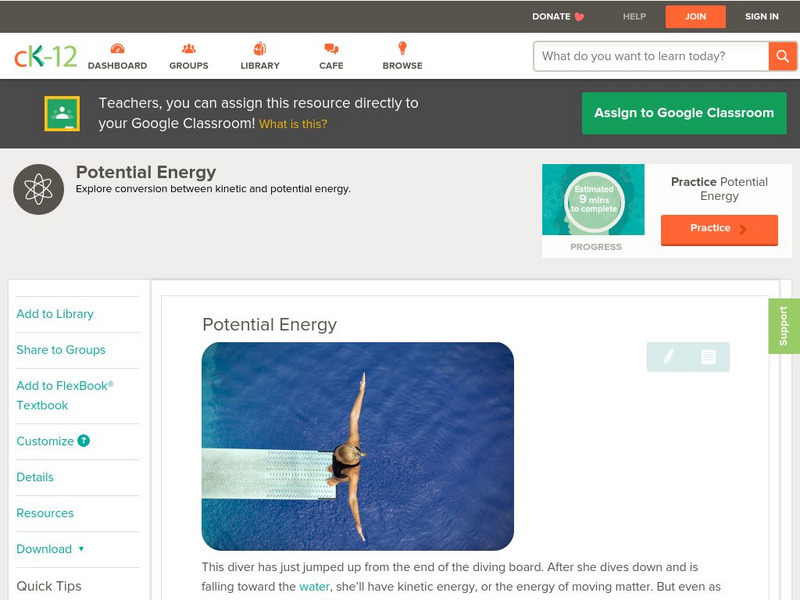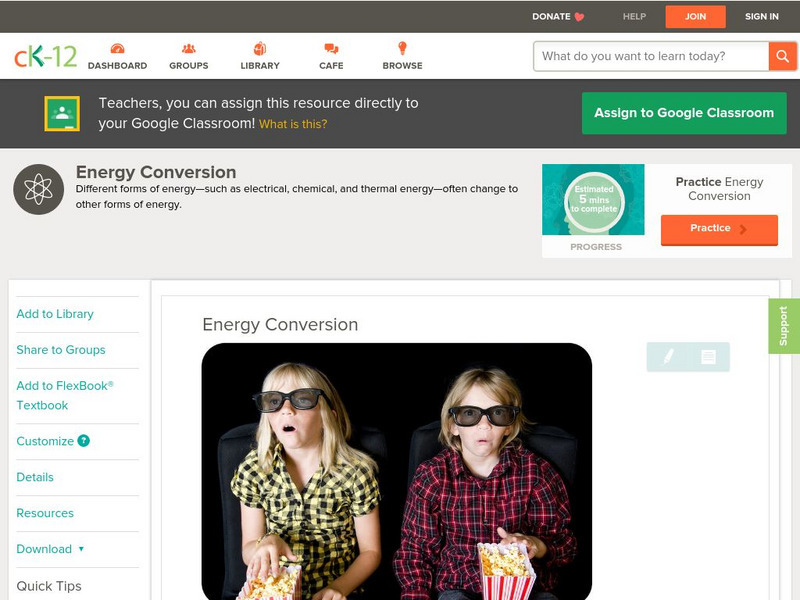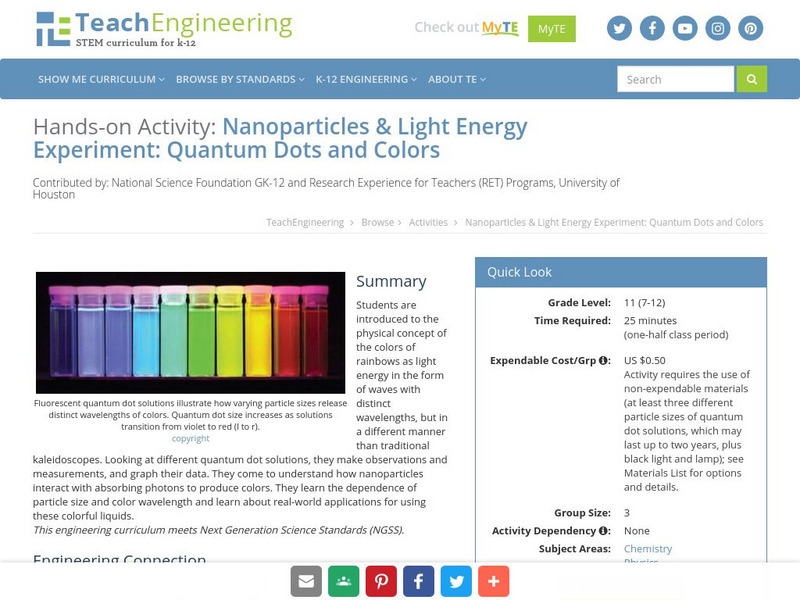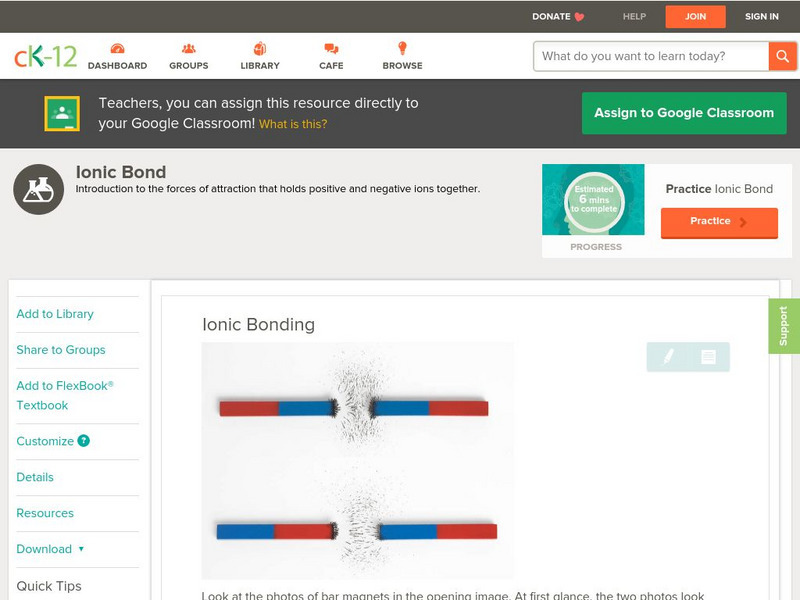CK-12 Foundation
Ck 12: Physical Science: Forms of Energy
[Free Registration/Login may be required to access all resource tools.] Introduction to forms of energy including the seven different forms.
CK-12 Foundation
Ck 12: Physical Science: Forms of Energy
[Free Registration/Login may be required to access all resource tools.] Introduction to the seven different forms of energy.
Annenberg Foundation
Annenberg Learner: Science in Focus Energy: What Is Energy?
A video workshop looking at the concept of energy. Discussions include energy as it is used in everyday language to the complex scientific meaning of energy. Presents common student misconceptions, history, and the importance of energy...
E-learning for Kids
E Learning for Kids: Science: Antilles: What Are the Different Forms of Energy?
Students will learn about the different types and sources of energy, including heat and light, electrical, potential, and kinetic energy.
Science Education Resource Center at Carleton College
Serc: Investigating Light: A Form of Energy You Can See
Students will investigate how light is a form of energy that travels as waves away from the source. The basis for this lesson is taken from the Houghton Mifflin science curriculum. In the lesson experiments, students will predict if...
University of Colorado
University of Colorado: Ph Et Interactive Simulations: Energy Skate Park
Explore kinetic, potential, and thermal energy as you send a skateboarder along several pre-built tracks, then design your own. Charts and graphs show the distribution of the different forms of energy, illustrating how the total energy...
CK-12 Foundation
Ck 12: Physical Science: Energy
[Free Registration/Login may be required to access all resource tools.] Discusses the definition of energy, the SI unit, and the seven different forms of energy.
CK-12 Foundation
Ck 12: Earth Science: Non Renewable Energy Resources
[Free Registration/Login may be required to access all resource tools.] What nonrenewable energy resources and fossil fuels are and how they form, and the drawbacks of using nonrenewable energy resources.
CK-12 Foundation
Ck 12: Earth Science: Non Renewable Energy Resources
[Free Registration/Login may be required to access all resource tools.] What nonrenewable energy resources and fossil fuels are and how they form, and the drawbacks of using nonrenewable energy resources.
Scholastic
Scholastic: Study Jams! Science: Matter: Energy & Matter
A video and a short quiz on the different forms of energy, and how energy moves or changes matter.
E-learning for Kids
E Learning for Kids: Science: Pirates: What Is Energy Conversion?
This lesson covers the different types of energy, the definitions of kinetic and potential energy, how energy can be converted into different forms, and the law of conservation of energy.
E-learning for Kids
E Learning for Kids: Science: Cayman Islands: What Is Energy Conservation?
Renewable and nonrenewable energy sources are described, different types of energy, and how energy can be conserved.
TeachEngineering
Teach Engineering: Energy Systems and Solutions
The Energy Systems and Solutions unit brings students through the exploration of science and engineering concepts as they relate to energy issues in everyday life. Issues surrounding energy production and energy consumption provide a...
CK-12 Foundation
Ck 12: Physical Science: Potential Energy
[Free Registration/Login may be required to access all resource tools.] Definition of potential energy, gravitational potential energy, elastic potential energy and other forms of potential energy.
Sophia Learning
Sophia: Energy Forms: Lesson 2
This lesson will explain the advantages and disadvantages of generating electricity from various forms of energy. It is 2 of 4 in the series titled "Energy Forms."
EL Education
El Education: Guide to Energy Sources
This guide was created by 3rd and 4th grade students at the Santa Fe School for the Arts and Sciences, in Santa Fe, New Mexico, as part of a learning expedition on energy sources and alternative energy. Students studied all forms of...
The Tech Interactive
The Tech Museum of Innovation: Save the Hiker [Pdf]
Can you build a device that will deliver life-saving treatment to someone in a hazardous situation? During this instructional activity, young scholars will learn how energy is converted and transferred between objects. Working in groups...
NASA
Nasa: S'cool: Students' Cloud Observations on Line
S'COOL is a NASA citizen science project where school children gather ground truth measurements that assist in verifying and improving the accuracy of the CERES (Clouds and the Earth's Radiant Energy System) satellite instrument...
CK-12 Foundation
Ck 12: Physical Science: Energy Conversion
[Free Registration/Login may be required to access all resource tools.] Decribes how energy changes from one form to another and energy changes between kinetic and potential energy.
Ducksters
Ducksters: Physics for Kids: Energy
Kids learn about the science behind Energy including its different forms such as chemical, electrical, heat, and gravitational. When is energy considered renewable or nonrenewable?
My Science Site
Optics: Energy and Control [Pdf]
A very comprehensive unit including topics such as light and its source, visible sources of light, transparency of objects and much more. Also offers a resource list, blackline masters, and expectation list, expectation summary and a...
TeachEngineering
Teach Engineering: Antimatter Matters
Antimatter, the charge reversed equivalent of matter, has captured the imaginations of science fiction fans for years as a perfectly efficient form of energy. While normal matter consists of atoms with negatively charged electrons...
TeachEngineering
Teach Engineering: Quantum Dots and Colors
Students are introduced to the physical concept of the colors of rainbows as light energy in the form of waves with distinct wavelengths, but in a different manner than traditional kaleidoscopes. Looking at different quantum dot...
CK-12 Foundation
Ck 12: Physical Science: Ionic Bonding
[Free Registration/Login may be required to access all resource tools.] Ionic bonds: How and why they form, and the role of energy in their formation.



